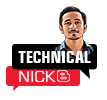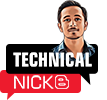India’s healthcare sector is undergoing a transformative journey, with technological advancements playing a pivotal role. One such technology, blockchain, has the potential to revolutionize the way healthcare data is managed, shared, and secured.
In this article, we will explore the future of blockchain in India’s healthcare sector, discussing its key benefits, potential applications, and the challenges that need to be addressed for its widespread adoption.
What Is Blockchain?
Blockchain is a distributed ledger technology that allows for secure, transparent, and tamper-proof transactions. It is a type of database that is shared across a network of computers. Each block in the chain contains a number of transactions, and every time a new transaction occurs on the blockchain, a record of that transaction is added to every participant’s ledger.
Blockchain is best known for its use in cryptocurrencies, such as Bitcoin and Ethereum. However, it has the potential to be used in a wide variety of other applications, including supply chain management, healthcare, and insurance.
Key Benefits:
1. Enhanced Data Security and Privacy:
Blockchain technology offers robust data security and privacy, which are crucial in the healthcare industry. With blockchain, healthcare records can be securely stored and shared across providers while maintaining patient confidentiality. The decentralized nature of blockchain ensures that data is encrypted, tamper-proof, and accessible only to authorized individuals, reducing the risk of data breaches and unauthorized access.

2. Efficient Interoperability And Data Exchange:
Interoperability is a significant challenge in India’s healthcare landscape. Blockchain can enable seamless data exchange and interoperability among various healthcare providers, enabling a holistic view of a patient’s medical history. This streamlined information sharing can improve care coordination, reduce duplicate tests, and facilitate better treatment outcomes. Smart contracts and standardized protocols within blockchain networks can automate and simplify the data exchange process, ensuring data integrity and accuracy.
3. Transparent And Traceable Supply Chain:
Blockchain can transform India’s pharmaceutical supply chain, ensuring the authenticity and traceability of drugs. By leveraging blockchain, each step in the supply chain, from manufacturing to distribution, can be recorded immutably and transparently. This technology can help tackle issues like counterfeit drugs and supply chain inefficiencies and ensure the availability of genuine medications to patients.
4. Decentralized Clinical Trials:
Clinical trials are essential to medical research, but they often face challenges related to transparency, data integrity, and patient recruitment. Blockchain-based platforms can address these issues by creating decentralized networks where trial data is securely stored and patient consent is ensured. This technology can enable more efficient and transparent clinical trials, leading to faster discoveries, reduced costs, and increased patient trust in the research process.
5. Insurance Claims and Fraud Prevention:
Blockchain can streamline the insurance claim process in India’s healthcare sector, reducing administrative burdens and preventing fraud. By securely recording claims data on a blockchain, insurers can automate claim verification, reduce processing time, and improve accuracy. The transparent and immutable nature of blockchain can also help prevent fraud by providing a trustworthy audit trail of claim transactions.
6. Blockchain For Secure And Verifiable COVID-19 Vaccination Records:
Blockchain technology can be crucial in securely storing and verifying COVID-19 vaccination records. By leveraging blockchain, individuals can have tamper-proof digital vaccination certificates that healthcare providers, employers, or travel authorities can easily access and verify. This ensures the authenticity of vaccination records, minimizes the risk of fraud, and facilitates seamless verification for various purposes.
Challenges And The Path Ahead:

While blockchain holds immense promise for India’s healthcare sector, some challenges must be addressed. These include regulatory frameworks, interoperability standards, scalability, and the integration of legacy systems. Collaborations between the government, healthcare providers, technology experts, and industry stakeholders are vital to drive the adoption of blockchain and develop the necessary infrastructure and policies.
Blockchain Market In Healthcare:
As per RationalStat market research report, the India blockchain in healthcare market is expected to expand at a CAGR of over 35.8% during the forecast period 2023-2028. The market’s growth can be attributed to the rising occurrence of data leaks and breaches and the growing need to address these concerns. Information updates or alterations are not permitted on the blockchain, thus ensuring high data or information security.
This is expected to drive industry growth in the coming years. Demand for blockchain technology is driven by its soaring use for critical functions such as verifying the authenticity of returned drugs, counterfeit prevention, pharmaceutical supply chain compliance, clinical trial transparency and traceability, and improving the reliability and quality of clinical trial data.
Conclusion:
The future of blockchain in India’s healthcare sector is bright and promising. From enhancing data security and privacy to facilitating interoperability and improving supply chain transparency, blockchain technology has the potential to revolutionize healthcare delivery and outcomes. To realize this potential, concerted efforts are required to overcome challenges, foster collaborations, and create an ecosystem that embraces blockchain innovation. As blockchain evolves, it will undoubtedly reshape India’s healthcare sector, benefiting patients, providers, and the overall healthcare ecosystem.
RationalStat’s market study and intelligence solutions can help your business to achieve new opportunities; our latest insights can help to cover target customers and stay ahead of the competition.
To Read More Tech Blogs Visit: Technical Nick

















